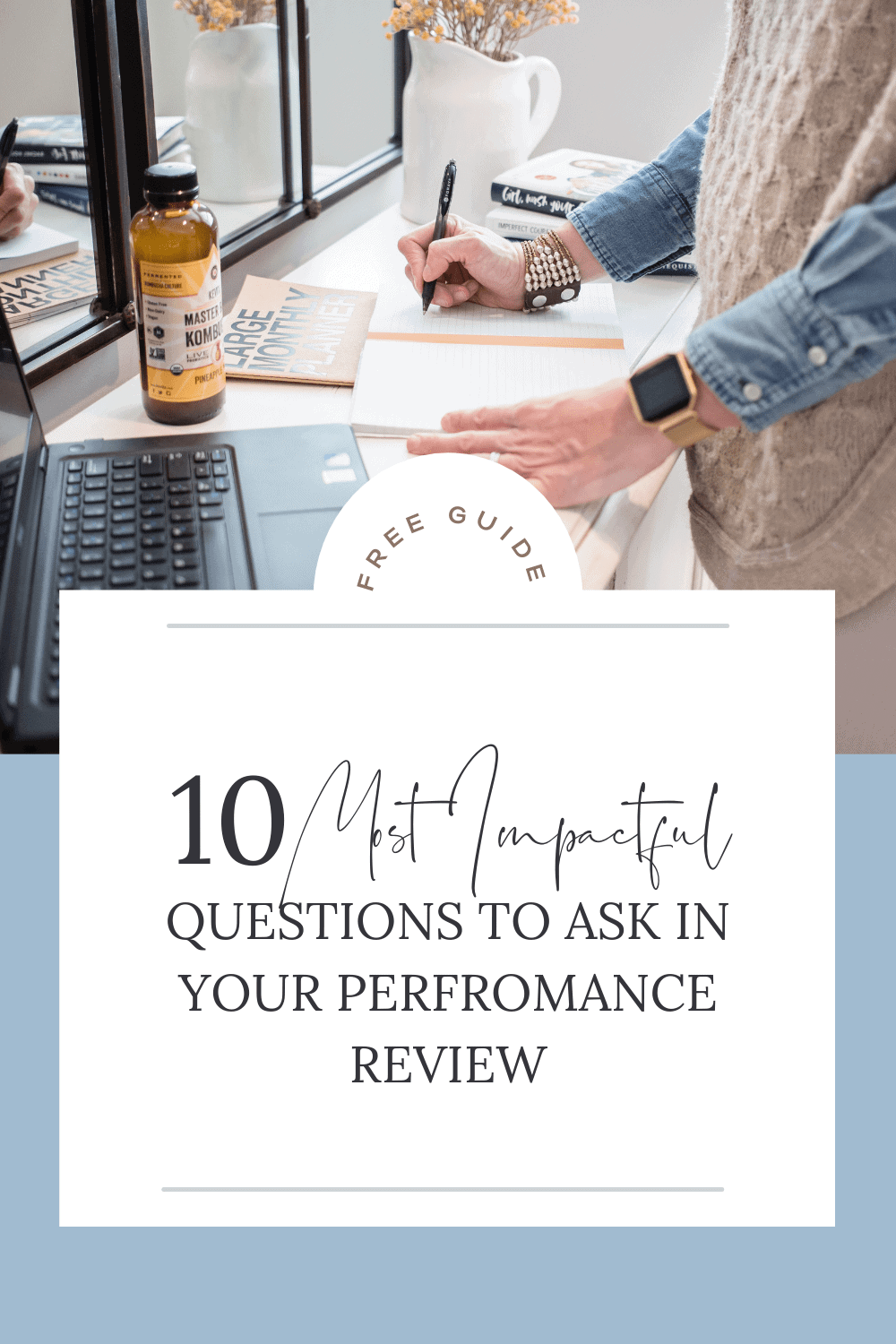Overcoming Impostor Syndrome: Shattering The Glass Ceilings In Our Minds
Impostor Syndrome is a very specific form of intellectual self-doubt, according to the American Psychological Association. While the term “Impostor Syndrome” has been around since the 1970’s, it is a phenomenon that humans have struggled with for hundreds or even thousands of years.
You know the feeling you get when you are outside your comfort zone? When you’re selected to play first-chair violin, or to join the starting eleven on the field, or when you were accepted into law school?
“Who, me?! They must have made a mistake.”
When I was in my 20’s, I was promoted to Chief Operating Officer (COO) of an organization after my boss, the previous COO, left. Twenty years my senior, my predecessor had degrees and certifications that I didn’t have, and yet there I sat, in what used to be his seat at the table.
It was up to me to figure out, in real-time, how to earn respect in a room where I suddenly felt like I was wearing a suit five sizes too big. What’s more, my former peers (now subordinates), most of whom were senior to me in age and tenure, had a front-row seat to watch me squirm.
I felt like a fraud & it was too late for me to dive into books on courage and confidence. I needed to present as a confident business woman immediately.
And then, right about the time that I settled into my role, our Chief Executive Officer (CEO) resigned and I suddenly found myself appointed by the board as the Interim CEO.
Because I could not believe that I had been moved into such a position (again) on my own merit, I got busy making up reasons all my own: “They must have asked the guys (my peers in the C-suite) first but they said ‘no’, so they came to me…” or “They must think I’m not as busy as everyone else, so they gave this role to me.”
In time, I came to see the skills that I brought to the table that others didn’t, but it took practical experience and a whole lot of affirmations for me to get there. I had experienced Impostor Syndrome, and it wasn’t the first time (nor would it be the last).
What is Impostor Syndrome?
The term “Impostor Syndrome” was coined by researchers Pauline Rose Clance & Suzanne Imes at Georgia State Univ. in 1978. Clance and Imes described it as “a phenomenon to describe the internal experience of a group of high-achieving women* who had a secret sense that they were not as capable as others thought, despite numerous achievements and evidence of superior intellectual function.” *Impostor Syndrome has since been shown to impact men and women, adolescents and adults alike from all professions, cultures, and levels of success.

People who suffer from Impostor Syndrome believe they have “fooled someone” into believing they’re smart/capable. They experience a set of feelings, behaviors, thoughts & beliefs that congregate around the sense that they are out of their depth. Overcoming these limiting beliefs is key to overcoming impostor syndrome.
Despite having tangible and intangible evidence to the contrary, so-called “Impostors” are unable to internalize their accomplishments in a way that allows them to feel like they have earned them outright and can thus take them to new places and succeed.
Consequently, they experience a persistent fear of being exposed as a fraud. They become paranoid that, at any moment, they will be discovered as someone who doesn’t know what they’re doing.
When Does Impostor Syndrome Surface?
Impostor Syndrome is most prevalent in high achievers, as they are constantly pushing themselves outside their comfort zones, consequently inviting in doubt and uncertainty. When one is up for a promotion or is a finalist for a position that is a stretch beyond their current station, Impostor Syndrome will strike.
Alas, peak performers find that the space between what they’re able to do and what they aspire to do will exist so long as they remain on their growing edge. To find someone who knows what Impostor Syndrome is all about, look no further than to some of the greats: Maya Angelou, Albert Einstein, John Steinbeck, Tina Fey, and others.
Rather than seeing Impostor Syndrome as a phenomenon to be conquered once and overcome for good, high achievers learn to expect the symptoms to arise, recognize them when they do, then live beyond them. They don’t see the signs as scary, but rather, a sign that they are steering their career towards growth. Meanwhile, the process of overcoming Impostor Syndrome keeps high achievers humble.
Consider Taylor, a 24-year old math teacher. She spent a year after undergrad working as a waitress as she considered how and where to start her career. She now has one year of experience under her belt teaching Algebra I to high school freshmen. In her first year as a teacher, Taylor’s students earned the best test scores in the county; guidance counselors have a waiting list for her classes.
Suddenly Ziad, a 30-year teaching veteran and the math department chair, announces he needs to take a leave of absence for the upcoming school year. The principal appoints Taylor to teach all of the AP and IB Calculus classes for the school’s Ivy League-caliber students.

Taylor has stellar accomplishments from her one year of teaching, yet she struggles to draw confidence from them. She worries that she is not actually competent enough to navigate teaching advanced mathematics to 11th and 12th graders, despite graduating summa cum laude in mathematics herself. Taylor has been appointed by her boss to fulfill Ziad’s commitments despite there being other, more tenured math teachers at the school to choose from.
When we don’t believe that we ourselves are the owners of our talents, abilities, and achievements, we develop anxiety and even paranoia that the world will eventually figure out that we’ve lied, cheated or finagled our way through life. Persistent limiting beliefs are a symptom of Impostor Syndrome.
Symptoms of Impostor Syndrome
Symptoms of Impostor Syndrome are evident in Taylor’s thoughts and words:
- “John and Reshma in the science department are down the hall right now, doubting my ability to prepare these students adequately for their classes.”
- Impostors spend a lot of time imagining what others are thinking of them. They believe they do not deserve success or professional accolades and feel that somehow others have been deceived into thinking otherwise.
- “My students posted great test scores last year because I was lucky enough to teach a really smart group of kids- it didn’t have anything to do with me.”
- The tendency to attribute success to luck or other external reasons and not their abilities is a clear indicator of impostor syndrome. Attributing their success to luck masks the fear that they will not be able to succeed the next time.
- “I hope my principal won’t find out that I really have no clue how to teach and that I managed to graduate with honors because my college professors were laid back.”
- Impostors believe they can give the impression that they’re more competent than they really are and have deep feelings that they lack knowledge or expertise. Often they believe they don’t deserve a position or a promotion and are anxious that “somebody made a mistake”. This belief of not belonging makes these high achievers seek even greater results and accomplishments. Impostor Syndrome attacks one’s confidence and changes one’s inner dialogue, profoundly negatively impacting productivity.
- (Taylor’s response to receiving a hearty ‘Congratulations!’ message from a colleague): “Oh, thank you, but I really think it had a lot to do with my predecessor leaving an excellent lesson plan.” or “The students were so well prepared by their previous teacher, even a monkey could have achieved success with them last year.”
- The tendency to downplay success and discount it is marked in those with impostor syndrome. They might attribute their success to it being an easy task or having support and often have a hard time accepting compliments. Again, they think their success is down to luck, good timing, or having fooled others.
High achieving, highly successful people often suffer, so Impostor Syndrome doesn’t equate with low self-esteem or a lack of self-confidence. In fact, some researchers have linked it with perfectionism, especially in women and among academics. “Impostors share in common a distorted, unrealistic, unsustainable definition of competence.”
Fraudulence vs. Impostor Syndrome
True fraudulence arises when there is an objective gap between our ability and our success — when our accomplishments can only be explained by luck, chance, nepotism, or manipulation.
Let’s take Taylor: there are objective gaps between what she is being asked to do and what she has experience in thus far. She has not yet taught kids this age this material; she has not yet prepped kids for AP exams. She needs this experience but does not yet have it; pretending she has this experience would make her a fraud.
Meanwhile, Taylor is questioning her own value: she doesn’t feel as though she deserved the promotion; she’s worried about failing in her role due to her perceived incompetence; she’s worried about other people’s opinions of her abilities; she’s applying pressure on herself to succeed, to be perfect. This is the Impostor Syndrome.
Taylor has been promoted into this role because her principal believes she is capable of succeeding in the midst of learning the new material and teaching juniors and seniors. Her principal has gauged her past performance and aptitude and promoted her accordingly.
Taylor can address the objective gaps in her expertise via conferences, books, and mentoring.
She can address the feelings that she doesn’t belong in this role using the following techniques.
Overcoming Impostor Syndrome
1. To Stop Feeling Like An Impostor, Stop Thinking Like an Impostor
Your thoughts inform your feelings, and your feelings inspire your actions. If you notice feelings of nervousness or self-doubt when you’re on your growing edge, pause to discern the thoughts that are behind the feelings.
- First, notice the thoughts. See and accept them objectively, without judgment. Imagine you are picking them up while at a store, turning them around in your hand to get a good look. By noticing them objectively, you are putting some distance between your “self” and your thoughts.
- Second, consider:
- What limiting beliefs are informing your thoughts?
- What situation precipitated these limiting thoughts and disruptive feelings?
- Who were you with?
- Third, place the thought (limiting belief) into a balloon and let it go, watching it in your mind’s eye as it floats off softly into the distance.
After you have identified the limiting beliefs that are informing your thoughts, it is time to create new thoughts that are empowering and even aspirational. Your work doesn’t stop here- you must incorporate these new thoughts into your mindset. Affirmations and meditation are simple, free, and effective tools to do so.
When you start to believe the new thoughts, you will generate new feelings of confidence.
2. Claim Your Title
Write down your title or the titles that you wear. If someone asked you what do you do and you answered it without fear, what would that title be?
The, answer these questions:
- Who do you serve?
- How do you serve them?
- What is your end result?
One of the best ways to combat Impostor Syndrome is to become confident talking about what you do. When you give this answer, you are claiming your title that used to make you feel like a fraud.
You are using words such as “I am” or “I help X solve Y problem”; you are not saying, “I kinda do this …” or “I sorta do that…”. You are proudly and assertively claiming your title, role, and impact.
Important Note: DO NOT add any caveats or verbal disclaimers; provide a prompt and clear response and a period.
3. Stop Making If/Then Statements
“If I win this award, then I will really be a school administrator instead of a teacher posing as an administrator.” Creating rules for your success isn’t the cure to Impostor Syndrome.
Your “enoughness” isn’t found in numbers or facts or figures. You will ALWAYS want more.
Write a new internal dialogue to yourself. Follow this outline: a) claim your title; b) add one piece of evidence; c) add your unique “why”- why is this important to you?
For example: “I am an administrator because I met with the various division heads today to discuss a new social media policy regarding teacher and student interactions online. I will serve the families at this school by honoring children’s safety and engaging their potential.”
4. Recognize The Benefits Of Being A Novice
If you are experiencing Impostor Syndrome, chances are, you are in a new position or are considering making a leap into new career territory. Rather than seeing yourself in a negative light as a novice or amateur, reframe your mindset to focus on what you have that others do not.
You have energy, passion and talent that others may have already exhausted. They may be looking forward to “fresh eyes” and the creative solutions that someone new to the field can offer. You can ask new questions or approach things in a way others haven’t thought of. Leverage your outsider’s perspective and ability to think critically.
Being new, you’re likely to fumble or misstep now and then. In those instances, focus more on what you’re learning than on how you’re performing.
Carol Dweck, author of the much-heralded book Mindset, states:
“With a performance mindset, which people suffering from Impostor Syndrome often have, you tend to see your feelings of inadequacy or the mistakes you make as evidence of your underlying limitations. This mindset only fuels the concerns you have about being unfit for your job. But there’s something you can work to cultivate instead: a learning mindset. From this perspective, your limitations are experienced quite differently. Your mistakes are seen as an inevitable part of the learning process rather than as more evidence of your underlying failings.”
Don’t worry about having it all figured out. You will naturally be one chapter ahead of everyone else when you are exploring things that you are passionate about. Admit that you don’t have all the answers and accept that this is normal and to be expected. Accept yourself where you are.
5. Gain Clarity On Your One Goal
As humans, we can be our own worst enemy. We can see the potential for disaster seven steps ahead of where we are. Not only do we imagine it, we believe that it is a foregone conclusion since we can anticipate the feelings of embarrassment, shame, or disappointment with crystal clarity.
We do this to ourselves; we can un-do this for ourselves.
- First, organize your thoughts into goals. What goals do you have for your first 30 days, or 7 days, or first day on the job?
- Next, prioritize your goals. What is the ONE thing that you want to make sure gets accomplished?
- Then, simplify. What is the ONE thing that you can do TODAY to move you closer to that goal?
When it is practical to do so, practice. You may make your presentation to a spouse or colleague, or request a mock interview with a friend or coach. This will calm your nerves and help you focus on the content, rather than context, of what you’re facing.
When appropriate, take a walk, focus on your breathing, and/or take a moment to observe and connect with the environment around you. Notice the decor, the colors, the faces of people greeting you; appreciate the environment and prepare yourself to be in harmony with it.
Consider how your performance will help solve others’ problems. Shifting your focus away from yourself can embolden you towards taking the actions necessary to move a team or business forward.
Lastly, visualize your success. Spend a moment considering how you will feel when the experience is complete. How might you reward yourself for your accomplishment? How will you describe your accomplishment to others?
6. Talk About Your Feelings
Understand the power of perspective. When we isolate ourselves to deal with our fears, we believe we’re the only ones experiencing our feelings. However, being found incompetent is the number one fear of executives worldwide.
Feeling incompetent does not mean you are incompetent. Consider your trusted colleagues, past and present; who might you share your feelings with? Do you have a mentor or coach who can relate to what you’re experiencing? Others may have solutions that you haven’t tried, or may share their own stories with you, reassuring you of your experience.
Let others butter you up! It’s okay to need reassurance from time to time. Get what you need, then seek to offer that same reassurance to others who may struggle in the future.
7. Reframe Failure As A Learning Opportunity
My eight year-old once dropped this truth-bomb on me while I was driving, and my elated response was downright hazardous: “Mom, did you know that mistakes are proof you’re trying?” Amen, son- amen.
Failure is advantageous. When we fail, we gain valuable insight that we wouldn’t have gotten had we not tried at all. Oftentimes, we don’t try because we fear failure rather than recognizing that every successful person is standing on a mountain of failures.
When you fail at some aspect of your new opportunity, find the lesson in the experience, then pivot. Use what you’ve learned constructively in the future to chart a new course.
Be kind to yourself: you are entitled to make small mistakes occasionally and forgive yourself. Reward yourself for getting the big things right.
8. Own Your Wins
Make a “FUD” list and a “Facts” list. On a piece of paper, draw a vertical line down the middle from top to bottom. On the left side of the page, list your Fears, Uncertainties, and Doubts (“FUD”); on the right side of the page, list the Facts.
As you consider the facts, you may see that you have won some awards, been recognized for your skills, or received praise of some kind. Pause to reflect on the facts: your rewards are based on merit. Your recognition is not due to an organization’s benevolence. Your efforts were rewarded because your efforts made a difference.
Being humble does not mean you should shy away from your accomplishments. Your wins- your accomplishments and recognitions- are facts. You worked hard; you earned them; you deserve them; own them!
9. Stop Comparing Yourself
It’s tempting to compare your insides to other people’s outsides. Don’t do it!
There will always be smarter, more talented, brighter individuals at the table. The danger in comparing yourself is that you will lose. Think about the fact that you do have a seat at the table. This way of thinking means people around you believe you have something valuable to say. It is a seat that you have earned.
Also important: don’t should on yourself. You know what I’m talking about- it goes like this:
“I should be more like ____” or “I shouldn’t struggle this way”.
The only person you “should” be is Y-O-U, right here, right now. It’s not who you are that holds you back, it’s who you think you’re not.
10. Commit to authenticity
Being truly authentic is the best and quickest antidote to the impostor experience.
The true self is always present and, whether we realize it or not, we are pretty in touch with it. If we weren’t, we wouldn’t feel the need to act like someone we’re not. Thus, we must develop self-love and self-respect, keeping in mind that who we are in any given moment is enough. When our thoughts, emotions, or actions begin to cause friction, it’s time to check in with ourselves: are we being true to who we are?
Lastly, cultivate an increased interest in our own self-opinions than the opinions of other people. When we value what other people think of us, OR- and this is more common- what we THINK other people think of us- then true fraudulence starts to emerge. Suddenly, we’re trying to satisfy other people’s expectations of who we should be and what we should know. The temptation to create the false persona is so much bigger when we are concerned about other people’s perceptions over our own.
Spend time daily cultivating an internal sense of self-worth that is based on one person’s opinion of yourself- your own.



